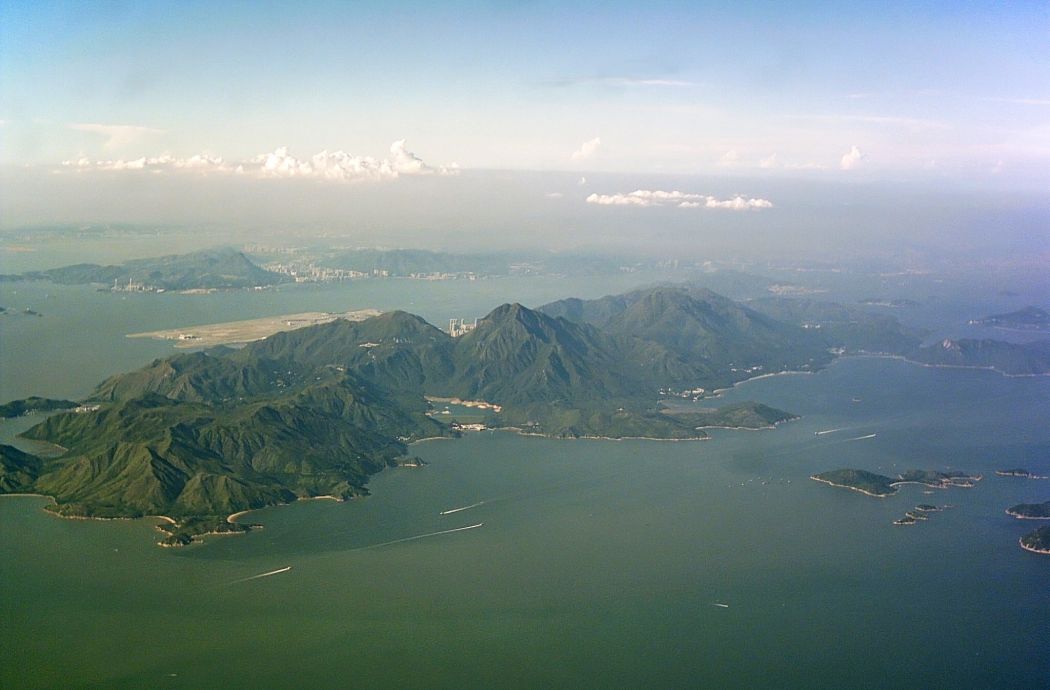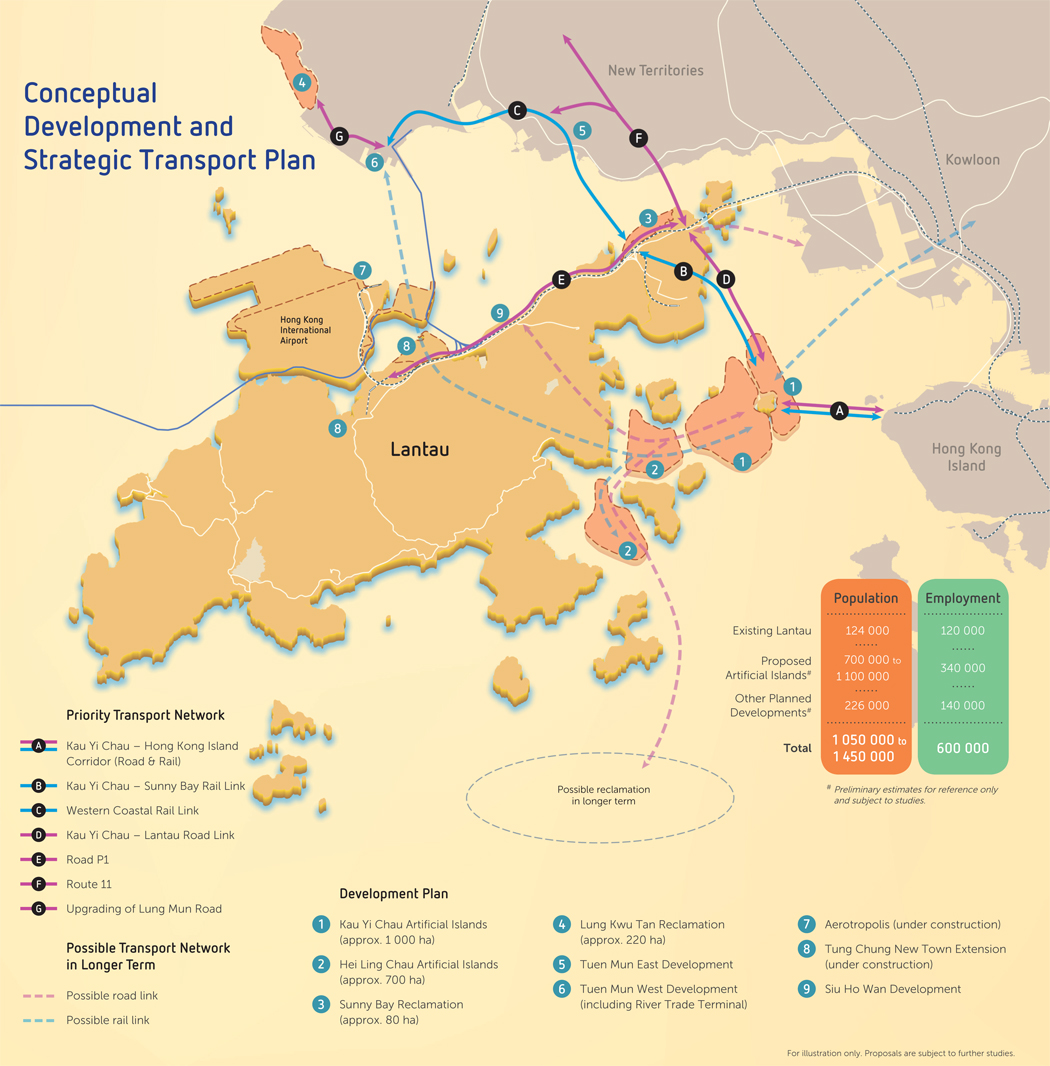By Alexander Haynes
Hong Kong has one of the most exquisite natural habitats for wildlife, and ample resources to pave the way for creative and world-leading environmental solutions – so why is the HK$624 billion Lantau Tomorrow Vision (LTV) Project, which could cause irreparable environmental damage, being proposed?
This was the central question being presented by student leaders of the Hong Kong Green School Alliance in the Legislative Council on Tuesday. Eleven students gathered to present 13 specific complaints and 11 points of resolution.
The hearing was not the first time concerns had been formally presented regarding the Lantau Tomorrow Vision project – an environmentalist group raised the issue in early March – it was, however, a marked step forward as the generation which will inherit the LTV was formally heard.

The Hong Kong Green School Alliance brought together political, economic, and environmental reasoning to point out functionally disastrous government planning. Advocating against LTV is one of their current tasks, and their work – while idealistic in the current political climate – is entirely realistic.
The territory’s natural resources are extraordinary by any standard, providing one of the main reasons the LTV project could be detrimental to the environment. The World Wildlife Fund (WWF) has found 84 hard coral species throughout Hong Kong, and more than 120 species of fish, 29 of which are region-specific or endangered.
There are six current Marine Parks. Three more parks are being proposed, two of which are for the Lantau region. The WWF also proposes another protected area in West Lantau totalling 1,500 hectares.
The rich biodiversity is an example of how the environment can give back to Hong Kong both economically and structurally. Instead of using the LTV as a means for future tourism, the Hong Kong government should research using this habitat to promote ecotourism, creating jobs that extend out of the environment as part of an estimate that ten million eco-friendly jobs could be created by 2030.
The other problem that cannot be ignored in Hong Kong is the housing and poverty crisis. Due to rising rent, many families are cutting their food spending to meet the need for shelter. A report from 2017 shows that 71,000 families spent less than HK$15 on each meal.
A 2018 report found more than one million people living below the poverty line. Despite a shirking real estate industry responding belatedly to the problem, prices have not reached a reasonable value for consumers. The LTV project provides a solution to this problem by building government housing.
This, however, ignores the potential damage on the environment as well as involving more government control over the population – a difficult sell in the current political atmosphere.

Furthermore, a justified concern among the Hong Kong Green Schools Alliance is that the economic development intended through the LTV will not advance the Hong Kong economy; rather run it into stagnancy while handing off major projects to mainland-based enterprises.
In an era where Beijing’s reach is a major concern, property and land manipulation has been one of the methods the CCP has used to keep a grip on the mainland economy. Foreign firms have also seen increased control by the CCP, another cause of concern. Hong Kong land developers have their own problems with the CCP.
Students said that the 1,200 hectares of brownfield sites in Hong Kong could be used for development instead, agreeing with the WWF’s suggestion. Further evidence arises from research group Liber, whose extensive research into the New Territories found land that could be purchased at a much lower cost and used to mitigate the housing crisis.
The Hong Kong Green School Alliance, while presenting optimistic solutions, face an uphill challenge. The most likely resolution, as admitted by council member Mr Abraham Shek in the 29 October public hearing, is that the project will be passed.
It represents one of the greater problems facing the next generation of Hong Kong. They face economic and environmental impasses with optimism while attempting to combat an elitist government.
Students such as Taylor Wong, Tiffany Chung, Jose Wong, Brian Muh, and Lok Wa U all voiced endless idealism and hope for a better future. Their next step should be focusing on realistic goals as well as connecting with the general public, local, and international schools throughout Hong Kong.
Their desire to make environmentalism not just a political side-show but a major consideration in policies is admirable and deserves the support of the general public.

The word used by the student leaders to describe their hope for the future was eco-literate, defined as a public educated on the proper and poor choices regarding the environmental economy. They want the community to commit to investing in green technology research, as well as to hold accountable corporations who persistently waste resources by choosing unsustainable methods.
The question which must be asked is, “What impact do you have on others?” The Hong Kong Green Schools Alliance, and the environmental sustainability movement at large, are still looking for the prominence they deserve. They want to leave a legacy which re-defines the course of history for Hong Kong, and the world’s environment.
The LTV project may be the current priority for the alliance, but there are plenty of other issues across districts and across international borders that can make sustainability reforms more than a political “back street”.
